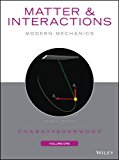Phys 211 – Fall 2017 – Section
2
Syllabus

|
Instructor: Dr Luca Bombelli E-mail: bombelli at olemiss.edu Lecture: Lewis 101, TTh 8:00 – 9:15 Required Text: Ruth W. Chabay & Bruce A. Sherwood, Matter and Interactions, Volume I: Modern Mechanics, 4th Edition, Wiley 2015. You will need a course pack that provides access to the WebAssign online homework system and ebook for the Chabay & Sherwood text; you can access this through Blackboard. If you wish, you may purchase just the online package, which includes all of the required textbook and homework material. You will also need the Top Hat classroom response system. Additional Material: A non-programmable calculator with keys for the main functions used in scientific calculations (trig functions, square root, logs, inverse, square), and the value of π, is highly recommended. |
|
Description |
This is the first course of a two-course sequence on calculus-based introductory physics, mainly for science and engineering majors; the companion course is Phys 212. Students who enroll must also take, or have previously passed, the Phys 221 lab or an equivalent lab course. In terms of math, students must either have taken Math 261, Calculus I, or be taking it together with Phys 201; They should also be comfortable with algebra up to quadratic equations, and with the basics of trigonometry. We cover roughly the 12 chapters of Volume 1 of the textbook. The main themes are: Motion, forces and energy for small objects in one, two and three dimensions; Analogous topics for larger objects that can rotate; Equilibrium, Elasticity, Gravitation, Fluids; Oscillations and Waves. Significant goals of this course are for students to improve their analytical reasoning and problem-solving skills. Part of this consists in "applying equations" and "getting the right result", but students will be evaluated on a broader set of skills, including the way they analyze a problem and place it in context, and the way they explain the general concepts and their approach to the problems in writing. We will be using calculus throughout the course. In the first semester we will mostly use differentiation (derivatives), but we will occasionally see examples of integrals. We make a heavier use of integration in the second semester. |
|
Homework-P .. 10% Top Hat ..... 20% 3 Midterms .. 30% Final Exam .. 30% 88% ≤ A- < 92% 84% ≤ B+ < 88% 80% ≤ B < 84% 76% ≤ B- < 80% 72% ≤ C+ < 76% 68% ≤ C < 72% 64% ≤ C- < 68% 50% ≤ D < 64% F < 50% |
Homework: Homework will be assigned, both to be done online and to be turned in on paper; announcements will be made in class and posted on this website. Homework turned in after the time it is due (both online and on paper) may not be accepted, but students may be excused from turning in an assignment if there is a valid reason. The lowest homework grade (both online and on paper) will be dropped. Solutions and format: Answers to questions and problems must always include explanations, and the grade will reflect content, presentation, and English. Remember to include the appropriate units with all quantities, and the appropriate number of significant figures. Paper homework must be written on 8.5 x 11" sheets and easy to read; pages must be stapled together, and have smooth (not torn) edges. Comment on group work: Physics is very rarely done alone. I encourage you to form study groups in preparation for homework assignments and tests. However, homework assignments should be the work of each individual student. If you can not do the homework, you will not do well on the tests! Quizzes: There will usually be a short quiz at the beginning of the lecture period on the material that was just covered. Tests: There will be three midterm tests and a final exam, consisting of numerical problems as well as essay questions and possibly multiple-choice questions. Students will be allowed to use a calculator, and one equation sheet will be provided together with each test. The final exam will be comprehensive, with emphasis on the last part of the course. |
| Academic Integrity:
Academic integrity is essential to all the values upon which the university is founded,
and students must embody academic honesty in all aspects of their work. A student with
a documented case of plagiarism or academic cheating will face consequences ranging from
receiving a 0 on the assignment, quiz or test in question to a grade of F for the course,
or possibly more severe ones depending on the seriousness of the incident. Specific consequences
of such behavior will be determined by the faculty member, or if necessary by the university's
Academic Discipline committee. Attendance Policy: There is no explicit attendance policy for the course, but attendance is expected and missed quizzes or other evaluations due to absences will result in scores of 0; students are required to scan their IDs at the beginning of each lecture period. There will normally be no make-ups for missed assignments, quizzes or tests, but a missed grade may be dropped if there is a good reason for it and the student has a good overall attendance record. |
|
Note: If a change in the class policies became necessary during the semester, it would be discussed in class before being implemented. After this discussion, the change would be posted on this website. |
|
website by luca bombelli <bombelli at olemiss.edu>; content of this page last modified on 28 nov 2017